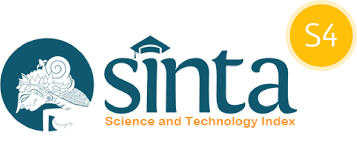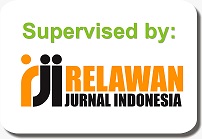PENERAPAN MODEL PEMBELAJARAN APTITUDE TREATMENT INTERACTION (ATI) UNTUK MENINGKATKAN KEMAMPUAN PEMAHAMAN KONSEP MATEMATIS DITINJAU DARI KEMANDIRIAN BELAJAR PESERTA DIDIK
DOI:
https://doi.org/10.36277/defermat.v3i1.53Keywords:
Ability to Understand Mathematical Concepts, Learning Ability, Learning Independence, Aptitude Treatment Interaction (ATI)Abstract
The ability to understand mathematical concepts is one important component that must be mastered and developed. The result of the pre-study show that the ability to understandmathematical concepts of students of MTS ANNUR Karang Rejo is still low, this can be seen from the resultsof the ability to understand mathematical concepts of students in the academic year 2019/2020 obtained the above values (KKM) with a value of ≥70 of 22 from 60 students. Researchers are interested in applying the learning model aptitude treatment interaction (ATI). The purpose of this study was to determine the effect of the aptitude treatment interaction (ATI) learning model to improve the ability to understand mathematical concepts in terms of students learning independence. This researchis a type of research Quasy Experimental Design. The instrument used to collect data is a test of the ability to understand mathematical concepts. Analysis of the data of this research is the analysis of variance of two paths with unequal cells. Based on the results of the study it can be concluded that: 1) there is an effect of the application of the learning model aptitude treatment interaction (ATI) to improve the ability to understand mathematical concepts compared to conventional learning, 2) there is an effect of increasing the ability to understand mathematical concepts that have high, medium, and low learning independence . 3) there is no interaction effect between the learning model and learning independence to improve students' mathematical concept understanding abilities.
References
Egok, A. S. (2016). Kemampuan Berpikir Kritis dan Kemandirian Belajar dengan Hasil Belajar Matematika. Jurnal STKIP Lubuk Linggau Sumatra, Vol. 7(Edisi 2), 197.
Farida. (2015). Pengaruh Strategi Pembelajaran Heuristic Vee terhadap Kemampuan Pemahaman Konsep Matematis Peserta Didik. 6(2), 111–119.
Fitri, S., & Utomo, R. B. (2016). Pengaruh Model Pembelajaran Auditory , Intellectually , and Repetition Terhadap Kemampuan Pemahaman Konsep di SMP Pustek Serpong. Jurnal E-DuMath, 2(2), 193–201.
Halimah Soinbala, F. M. (2019). Penerapan Strategi Pembelajaran Metakognitif Dalam Meningkatkan Pemahaman Konsep Matematika.De Fermat : Jurnal Pendidikan Matematika, 2(1), 46–56.
Herlina. (2015). Pengaruh Pendekatan Aptitude Treatment Interaction (Ati) Terhadap Pemahaman Konsep Matematika Siswa Kelas Viii Smp Negeri 25 Pekanbaru. Jurnal Primary Program Studi Pendidikan Guru Sekolah Dasar Fakultas Keguruan Dan Ilmu Pendidikan Universitas Riau, Volume 4 N(April), 79–86.
Karwono, & Mularsih, H. (2017). Belajar dan Pembelajaran. Jakarta: Rajawali Pers.
Nanang, S., & Damayanti, R. (2016). Analisis Kemampuan Komunikasi Matematis Siswa Lamban Belajar dalam Menyelesaikan Soal Bangun Datar. Aljabar, 7(No 1).
Panjaitan, M. R. (2013). Pengaruh Model Inkuiri terhadap Hasil Belajar Matematika Ditinjau dari Kemandirian Belajar Siswa di SMP N Salatiga. Jurnal Ilmiah UKWS, Salatiga.
Pratiwi, D. D.(2016). Pembelajaran Learning Cycle 5e berbantuan Geogebra terhadap Kemampuan Pemahaman Konsep Matematis. Al-Jabar: Jurnal Pendidikan Matemtikan Vol 7.(No.2), 192.
Putra, R. W. Y. (2015). Perkembangan Konflik Kognitif untuk Meningkatkan Kemampuan Komunikasi Matematis Siswa Berdasarkan Kategori Pengetahuan Awal Matematis. Aljabar : Jurnal Pendidikan Matematika, Vol. 6(No. 2).
Ruseffendi. (1979). Pengajaran Matematika Modern untuk Orang Tua Murid. Bandung: Tarsito.
Sugiono. (2015). Metode Penelitian Pendidikan Kuantitatif, Kualitatif dan R&D (Cetakan Ke). Bandung: Alfabeta.














